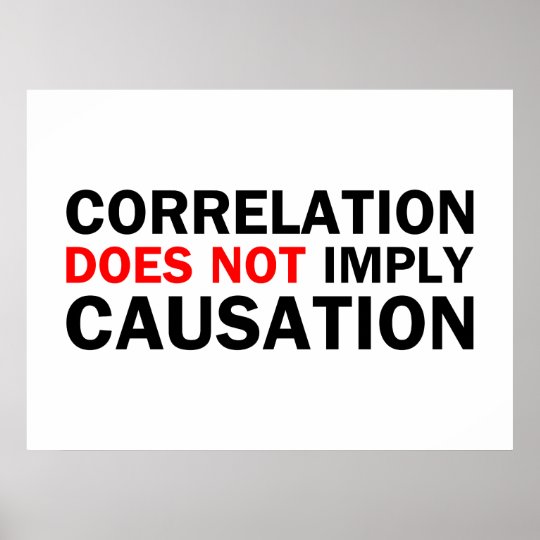
But the correlation of their places in time and space, as well as a known predilection for cookies means that correlation strongly suggests an avenue of investigation (you're probably not going to start figuring out what happened by pursuing some other entirely different course). Does his presence CONCLUSIVELY PROVE that he ate the cookies? Of course not, and a wise parent would find other evidence to draw a conclusion. A power plant is built on a river, and the river starts drying up - most people would begin their analysis by checking on the power plant, and not the population of honeybees. In fact, correlation is used by most scientists to begin the hypothesis process. People love to use it as a "gotcha" phrase, PRECISELY because in regular life correlation does in fact usually imply causation. The reason this phrase is so catchy is that it's counter-intuitive, and easily proven to be true. What if you're 100% sure you can pull yourself up, but only 99,9% sure you'll both fall to your deaths and a 0,1% chance that you through superhuman strength will pull you both up? It's hard not to get philosophical.Ĭorrelation doesn't PROVE causation.but it bloody well DOES suggest it, at least in the course of our daily lives. In no case is there a question of physical cause and effect, but would you philosophically cause his death by kicking him off or was he dead either way? What if you can hold on another minute, is that murder? Five minutes? Fifty years? I mean he's human, he's eventually going to die - you're not really changing the outcome. Either you kick him off so he falls to his death or you both fall to your deaths. For example, you are hanging off a cliff and another person clings to you but you can't hold on. Causal responsibility - which by the way is not just about assigning blame, but also things like credit - is very hard. And it all depends on how well the person could predict or control the chain of effects set in motion.Ĭausality is easy. It tries to give weight and quality to those causes that depends on the state of mind, say attempted arson is a lot more "dominating" relative to poor fire safety than an accident even if the fire is physically identical.

Not the policeman who forgot his bulletproof west at home or the kids who teased the murderer in third grade or the parents for conceiving him. Imagine for a murder every detail that happened in both the murderer's and victim's life who lead them there, they're all causally necessary but we put the blame on the killer. The reason causation has a ten page philosophical page is that on the macro scale everything is a result of and happen in conjunction with a gazillion butterfly effects that were either present or absent, in fact the physical article is quite short. Nice, but how bout correlation is a math formula, on the other hand causation has a ten page philosophical wikipedia page and even though Hume died like 300 years ago this year people are still arguing about it, with the exception that on the internet everyone agrees correlation isn't it, which I guess is at least some progress.


 0 kommentar(er)
0 kommentar(er)
